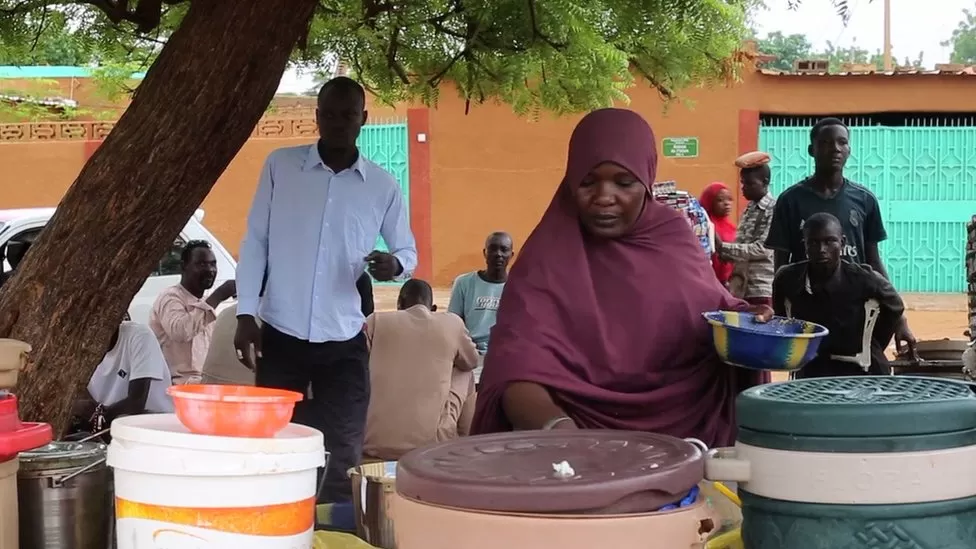Fear and anger in Niamey as Ecowas threatens force

Zara Kada serves rice, fish, and vegetables to her customers on wooden benches in Niamey, the capital of Niger. In the aftermath of economic sanctions imposed after the military seized power, food prices have skyrocketed, threatening the widowed mother-of-seven’s business.
She says standing by her small food stall, “Not only has rice’s price increased, but the price of cooking oil has as well. We have seen an increase of 2,500F CFA ($4: £3) in just one week.” If I make the rice and I can’t sell it, there will be no profit.
Mohamed Bazoum, the democratically elected president of Niger, was deposed two weeks ago by Niger’s army, attracting widespread international condemnation.
Ecowas is determined to prevent yet another military takeover in the region – the sixth in three years.
The Ecowas security chief Abdel Fatau Musah as saying, “We are drawing the line in the sand.”.
“If we don’t stop what has happened in that country, then which country is next?” he asks.
In response, Ecowas has cut off all financial transactions, electricity supplies, and, in a particularly painful move for landlocked Niger, closed its land borders.
Following a second emergency summit on Niger’s crisis, regional heads of state have ordered the activation of a standby military force, ready to invade the country if the military continues to hold power. There is real anger in Niamey at the way regional governments responded and the threat of military intervention.
The Niger soldiers are ready to face any attack against the country. They can count on our support, the support of the population, and our partners. We are ready,” Bana Ibrahim says.
As a result of the Ecowas announcement, the 46-year-old is a leader of a self-defence unit.
“We are here to defend our country because the country is threatened by Ecowas mercenaries, which I refer to as mercenaries working for [French President Emmanuel] Macron. So we are here to protect our Niger and its people.”.
Ms Kada’s business has taken a hit since the coup, but Ibrahim Souleymane’s is doing well.
His crammed tailor’s shop is filled with white, blue and red pieces of cloth.
